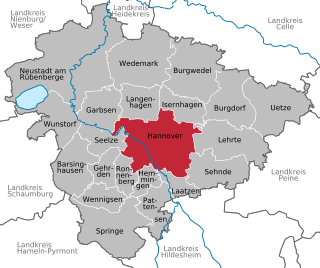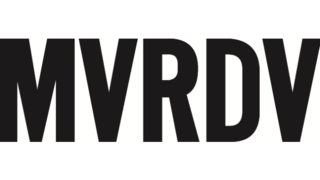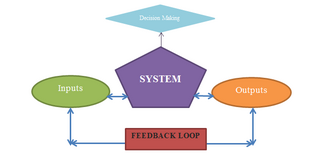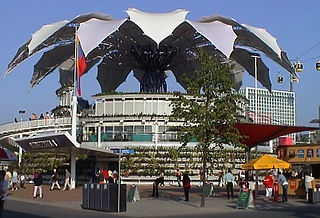Related Research Articles

Environmental law, also known as environmental and natural resources law, is a collective address environmental pollution. A related but distinct set of regulatory regimes, now strongly influenced by environmental legal principles, focus on the management of specific natural resources, such as forests, minerals, or fisheries. Other areas, such as environmental impact assessment, may not fit neatly into either category, but are nonetheless important components of environmental law.

Hanover or Hannover is the capital of and largest city in the state of Lower Saxony. Its 535,061 (2017) inhabitants make it the thirteenth-largest city in Germany as well as the third-largest city in Northern Germany after Hamburg and Bremen. The city lies at the confluence of the River Leine and its tributary Ihme, in the south of the North German Plain, and is the largest city in the Hannover–Braunschweig–Göttingen–Wolfsburg Metropolitan Region. It is the fifth-largest city in the Low German dialect area after Hamburg, Dortmund, Essen and Bremen.
Sustainable development is the organizing principle for meeting human development goals while simultaneously sustaining the ability of natural systems to provide the natural resources and ecosystem services based upon which the economy and society depend. The desired result is a state of society where living conditions and resources are used to continue to meet human needs without undermining the integrity and stability of the natural system. Sustainable development can be defined as development that meets the needs of the present without compromising the ability of future generations to meet their own needs.

Permaculture is a set of design principles centered on whole systems thinking, simulating, or directly utilizing the patterns and resilient features observed in natural ecosystems. It uses these principles in a growing number of fields from regenerative agriculture, rewilding, and community resilience.

Expo 2000 was a World Expo held in Hanover, Germany from Thursday 1 June to Tuesday 31 October 2000. It was located on the Hanover Fairground, which is the largest exhibition ground in the world. Initially some 40 million people were expected to attend the exhibition over the course of months, however eventually with less than half of this number the Expo was a flop and turned out a financial failure.

MVRDV is a Rotterdam, Netherlands-based architecture and urban design practice founded in 1993. The name is an acronym for the founding members: Winy Maas (1959), Jacob van Rijs (1964) and Nathalie de Vries (1965). Maas and Van Rijs worked at OMA, De Vries at Mecanoo before starting MVRDV.

Green building refers to both a structure and the application of processes that are environmentally responsible and resource-efficient throughout a building's life-cycle: from planning to design, construction, operation, maintenance, renovation, and demolition. This requires close cooperation of the contractor, the architects, the engineers, and the client at all project stages. The Green Building practice expands and complements the classical building design concerns of economy, utility, durability, and comfort.

TUI Arena is an arena in Hanover, Germany. The arena opened in 2000 and holds 10,767, during hockey or handball matches and up to 14,000, during concerts. It is the biggest indoor-venue in the Region Hannover and most major concerts are held there. The arena is situated at the expo plaza in the Expo 2000 grounds, in the south of Hanover, astride the Kronsberg and Mittelfeld areas.
Visual design elements and principles describe fundamental ideas about the practice of visual design.
"The best designers sometimes disregard the principles of design. When they do so, however, there is usually some compensating merit attained at the cost of the violation. Unless you are certain of doing as well, it is best to abide by the principles."

Michael Braungart is a German chemist who advocates that humans can make a positive instead of a negative environmental impact by redesigning industrial production and therefore that dissipation is not waste. A former Greenpeace activist who once lived in a tree as protest, he is now considered to be a visionary environmental thinker.

The Hanover S-Bahn is an S-Bahn network operated by S-Bahn Hannover GmbH in the area of Hannover in the German state capital of Lower Saxony. It went operational shortly before Expo 2000 and is focused on the Hanover region, and also connects with adjacent districts, and into the state of North Rhine-Westphalia. The S-Bahn is an evolution of a suburban railway.
Slow Design is a branch of the Slow Movement, which began with the concept of Slow Food, a term coined in contrast to fast food. As with every branch of the Slow Movement, the overarching goal of Slow Design is to promote well being for individuals, society, and the natural environment. Slow Design seeks a holistic approach to designing that takes into consideration a wide range of material and social factors as well as the short and long term impacts of the design.

Regenerative design is a process-oriented whole systems approach to design. The term "regenerative" describes processes that restore, renew or revitalize their own sources of energy and materials. Regenerative design uses whole systems thinking to create resilient and equitable systems that integrate the needs of society with the integrity of nature.
Ecological design or ecodesign is an approach to designing products with special consideration for the environmental impacts of the product during its whole lifecycle. It was defined by Sim Van der Ryn and Stuart Cowan as "any form of design that minimizes environmentally destructive impacts by integrating itself with living processes." Ecological design is an integrative ecologically responsible design discipline.
This page is an index of sustainability articles.

Sustainability is the ability to exist constantly. In the 21st century, it refers generally to the capacity for the biosphere and human civilization to coexist. It is also defined as the process of people maintaining change in a homeostasis balanced environment, in which the exploitation of resources, the direction of investments, the orientation of technological development and institutional change are all in harmony and enhance both current and future potential to meet human needs and aspirations. For many in the field, sustainability is defined through the following interconnected domains or pillars: environment, economic and social, which according to Fritjof Capra is based on the principles of Systems Thinking. Sub-domains of sustainable development have been considered also: cultural, technological and political. According to Our Common Future, Sustainable development is defined as development that "meets the needs of the present without compromising the ability of future generations to meet their own needs." Sustainable development may be the organizing principle of sustainability, yet others may view the two terms as paradoxical.
In 1997, a core set of six principles was established by ecological economist Robert Costanza for the sustainability governance of the oceans. These six principles became known as the "Lisbon Principles": together they provide basic guidelines for administering the use of common natural and social resources.
Environmentally Sustainable design is the philosophy of designing physical objects, the built environment, and services to comply with the principles of ecological sustainability.
Ecopreneurship is a term coined to represent the process of principles of entrepreneurship being applied to create businesses that solve environmental problems or operate sustainably. The term began to be widely used in the 1990s, and it is otherwise referred to as "environmental entrepreneurship." In the book Merging Economic and Environmental Concerns Through Ecopreneurship, written by Gwyn Schuyler in 1998, ecopreneurs are defined as follows:
"Ecopreneurs are entrepreneurs whose business efforts are not only driven by profit, but also by a concern for the environment. Ecopreneurship, also known as environmental entrepreneurship and eco-capitalism, is becoming more widespread as a new market-based approach to identifying opportunities for improving environmental quality and capitalizing upon them in the private sector for profit. "

The Venezuelan Pavilion designed by Venezuelan architect, Fruto Vivas, is a 3-story glass, steel, and textile structure shaped like a flower presented during the Expo 2000 in Hannover. Vivas intended the building to be “A flower from Venezuela for the World.” The pavilion was later moved to Venezuela, where it is now located in Barquisimeto, Lara. Vivas collaborated with German engineer Frei Otto for the design of the building.
References
- ↑ "The Hannover Principles". Archived from the original on 2012-02-04. Retrieved 2012-05-17.